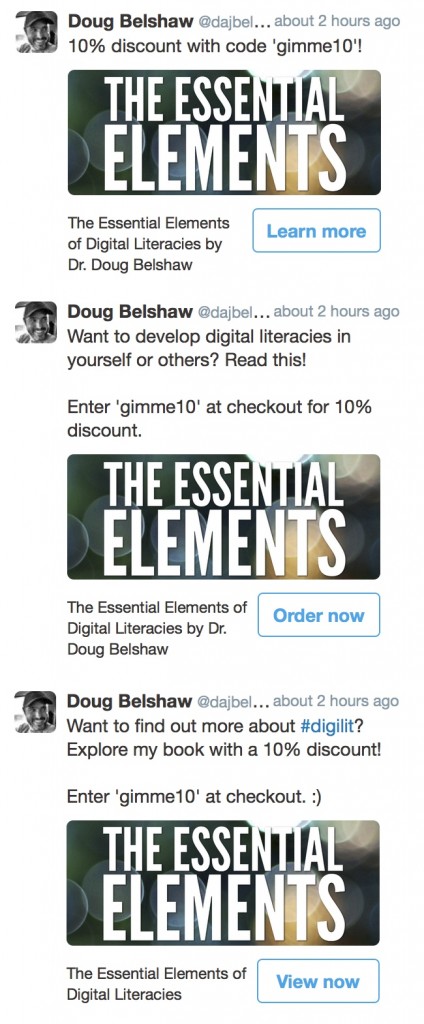Experimenting with Twitter ads for my ebook
This morning a tweet from Rory Cellan-Jones, the BBC technology correspondent, caught my eye:
Update – after spending £20 on Twitter ads (forgot it was £10 a day) @BBCTechTent promoted tweet had 56,273 impressions with 81 engagements
— Rory Cellan-Jones (@ruskin147) May 1, 2015
Looking back through his timeline took me to a Facebook page for the ‘BBC Tech Tent’ where Rory discussed the BBC team’s experiments with Facebook and Twitter ads.
That got me thinking.
I played around with Twitter analytics when it launched and found it pretty fascinating. However, I started to become a bit too obsessed with ‘engagement’ and put it to one side. At the end of the day, I’m not actually that bothered how many people follow me. It’s all about the exchange of ideas and having a rich information environment.
What this morning’s activity did do was give me a nudge down the path of trying out Twitter ads. I been considering it for a while and so decided to bite the bullet and set up three promoted tweets. They will show in people’s timelines over the weekend and all point towards my ebook, The Essential Elements of Digital Literacies:
As you can see, I’ve set up three different promoted tweets with the same image but slightly different text and calls to action (Learn / Order / View). I’ve put $50 in the pot – $25 split between Saturday and Sunday – and limited the target audience to English. Specifying areas/localities to target is mandatory, so I went with UK, USA, Canada, Australia, and New Zealand. For some reason I couldn’t specify India?
This is an experiment. Would I like more people to read my book? Absolutely. But it’s not just about that. The main thing here is playing with Twitter ads so I know how (if!) they work. After Gumroad’s commission and the 10% discount, I need less than 10 additional people to buy my ebook to break even. I’ll let you know the outcome. 🙂



